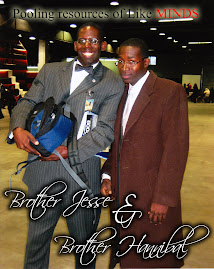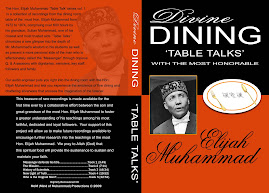Job Losses Show Wider Racial Gap in New York

Roger Richardson, 47, left his sales job at Home Depot in June to look for work after his hours were cut by more than half.
 Charles Taylor is now on trial in The Hague for war crimes.
Charles Taylor is now on trial in The Hague for war crimes. By MIKE STOBBE (AP) – 16 hours ago
ATLANTA — Nearly 36 percent of black Americans are obese — much more than other major racial or ethnic groups — and that gap exists in most states, a new federal study finds.
About 29 percent of Hispanics and 24 percent of whites are obese, the Centers for Disease Control and Prevention reported Thursday. Overall, about 26 percent of U.S. adults are obese.
Racial differences in obesity rates have been reported before, and health officials were not surprised to see larger proportions of blacks tipping the scales.
But the new CDC report is the first to look at the gap state-by-state, finding blacks had significantly higher obesity rates in 21 states and somewhat higher rates in many others.
Experts believe there are several reasons for the differences. People with lower incomes often have less access to medical care, exercise facilities and more expensive, healthier food. In many places, minorities are disproportionately poor.
"Poverty is a very strong driver of obesity," said Kelly Brownell, director of Yale University's Rudd Center for Food Policy and Obesity.
Attitudes about weight also are believed to be a factor, said Dr. Liping Pan, a CDC epidemiologist. Researchers cited a 2008 study that found black and Hispanic women had significantly lower odds of being dissatisfied with their body size than white women.
"Black and Hispanics are more accepting of high weight," Pan said, adding that heavy people who are satisfied with their size are not likely to diet or exercise.
However, it could be that over time as people struggle with poverty and environment "they come to accept the higher weights," Brownell said.
Obesity is based on the body mass index, a calculation using height and weight. A 5-foot-7-inch adult who weighs 190 pounds would have a BMI of 30, which is considered the threshold for obesity.
The data comes from a national telephone survey of more than 1 million Americans over the years 2006 through 2008.
For blacks, the highest obesity rate was in Maine, where 45 percent were obese. Tennessee was the state where Hispanic obesity was most common. And West Virginia was the fattest state for whites.
But generally, obesity was most common for both blacks and whites in the South and Midwest.
The study also broke down the groups by gender, and found black women were the heaviest, with 39 percent counted as obese. Black men were next, at 32 percent, then Hispanic women, 29 percent, Hispanic men, 28 percent, white men, 25 percent and white women, 22 percent.
The study is being published this week in a CDC publication, Morbidity and Mortality Weekly Report.
Copyright © 2009 The Associated Press. All rights reserved.
Copyright © 2009 AFP. All rights reserved.
http://www.google.com/hostednews/afp/article/ALeqM5hS3q6lYzZGIdfBkTop5kxusvlQ1A
| By Molly K. Hooper | |
| Posted: 07/12/09 10:01 PM [ET] | |
| Key House Republicans are charging Attorney General Eric Holder of playing politics at the Justice Department. Rep. Frank Wolf (R-Va.) said Holder has ignored at least three letters sent over the past month from Republicans demanding to know why Justice dismissed charges of voter intimidation filed against two members of the “New Black Panther Party for Self-Defense” (NBPP). Charges against the Black Panthers were originally filed when President George W. Bush was in power. A spokeswoman for Justice said facts did not back up the charges, and that career officials at Justice, not political appointees, decided to drop the charges. “Following a thorough review, a career attorney in the Civil Rights Division determined that the facts and the law did not support pursuing the claims against three of the defendants,” spokeswoman Tracy Schmaler said. “As a result, the Department dismissed those claims.” Committee sources said they expected Justice to send a letter on Monday to Wolf and other members, and to brief Republicans on why the charges were dropped. Holder let stand one of the four original charges though. The leader of the black nationalist group’s Philadelphia chapter, Minister King Samir Shabazz, is charged with brandishing a “deadly weapon,” a nightstick, outside of the polls. As a result, he was punished with not being able to brandish a weapon within 100 ft. of a polling station in Philadelphia until after the 2012 elections. Wolf, ranking member of the House Judiciary subcommittee that funds Justice, has called on Judiciary Committee Chairman John Conyers (D-Mich.) to hold a hearing into the matter. He said one of the Black Panther members was allegedly carrying a local Democratic committee card. In a letter to Conyers, Wolf wrote that Justice’s inaction ‘merits congressional attention, if only to force the department to explain its decision to dismiss this case.” Rep. Lamar Smith (R-Texas), the ranking Republican on Judiciary, also said the dismissal raises questions about politicization at Justice. “The American people need to know that the Justice Department takes seriously cases of voter intimidation, regardless of the political party of the defendants,” Smith said. He noted that Conyers held 70-hearings on the political firings of several U.S. Attorneys under former Bush. Conyers has not ruled out holding an investigative hearing but wants to take the situation “one-step at a time,” Democratic committee sources said. These sources said Conyers told Holder to respond to the GOP request for answers after speaking with Wolf about the matter on Thursday. Shabazz and Jackson were captured on widely circulated video of the incident standing 10-15 feet from the polling station. The two men are seen standing shoulder to shoulder, dressed in black military-style uniforms, black berets and combat boots; Shabazz tapped and pointed the nightstick in his hands at individuals. According to an affidavit filed by veteran voting rights activist Bartle Bull, who monitored elections in Mississippi at the height of the civil rights movement, the New Black Panther¹s directed racist comments towards white poll workers such as “you are about to be ruled by the black man, cracker.” Rep. Robert Brady (D-Pa.) says those charges are “bull.” The congressman, who also chairs the Philadelphia Democratic Party, said he went to the polling station on election day last year after hearing about reports of threatening behavior, but found no evidence. “They weren¹t intimidating anybody, they didn¹t try to suppress any votes,” said Brady. That’s not enough for Wolf, a native Philadelphian, who has repeatedly asked to hear from Holder why the charges were dropped by Justice. “This guy (Attorney General Eric) Holder is a jerk,” Wolf told the Hill on Thursday out of frustration that the AG had rebuffed each request for answers. |

Roger Richardson, 47, left his sales job at Home Depot in June to look for work after his hours were cut by more than half.

Brother Hannibal Blogging has been nominated for the 2009 Annual Black Weblog Awards. The Black Weblog Awards was founded in 2005 to give recognition to Black bloggers (and those of the African diaspora) which were largely overlooked by other Internet award events online. What started out as a barely-known event has now grown into an international showcase. With participants from over 90 countries, the Black Weblog Awards stands out as one of the most widespread Internet award events for Black bloggers.
How can you help? We need you to click on the link below and cast your vote. Voting ends July 25, but don't wait.
Cast Your Vote Here: http://vote.blackweblogawards.com/vote/nRbdnKu7euYVDurz
• UN sounds warning after 30m hectares bought up
• G8 leaders to discuss 'neo-colonialism'













